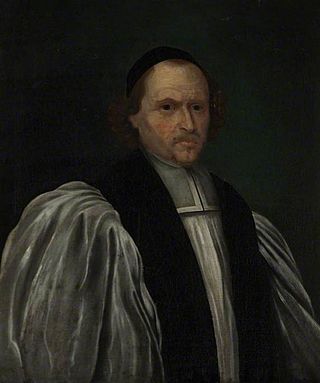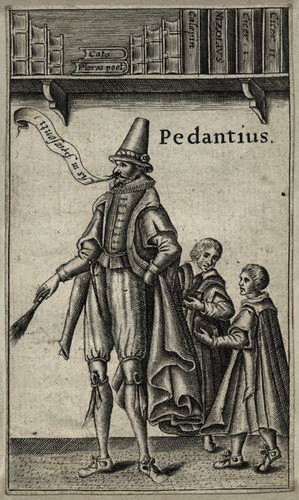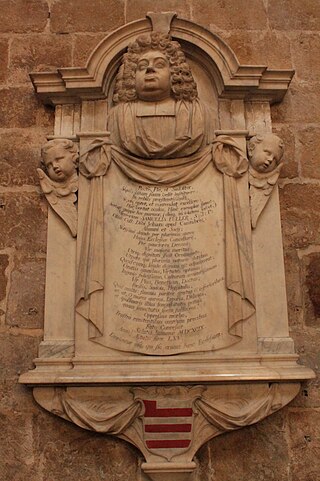Related Research Articles

Philip Henry was an English Nonconformist clergyman and diarist. His son Matthew Henry was a notable commentator on the Bible and also a Presbyterian minister.
Thomas Vincent was an English Puritan minister and author.
Samuel Pullen (1598–1667) was the Church of Ireland archbishop of Tuam in Ireland.

William Piers was Vice-Chancellor of Oxford University from 1621 to 1624, Bishop of Peterborough from 1630 to 1632 and Bishop of Bath and Wells from 1632 until the abolition of episcopacy in 1646, then again from the Restoration in 1660 to his death in 1670.
Henry Newcome was an English nonconformist preacher and activist.

Benjamin Lany was an English academic and bishop.
George Walker (c.1581–1651) was an English clergyman, known for his strong Puritan views. He was imprisoned in 1638 by William Laud, Archbishop of Canterbury, an affair that was later raised against Laud at his trial. He became a member of the Westminster Assembly in 1643.
John Tillinghast (1604–1655) was an English clergyman and Fifth-monarchy man. He is known for his confrontation with Oliver Cromwell, and millenarian writings.

Thomas Beard was an English clergyman and theologian, of Puritan views. He is known as the author of The Theatre of Gods Judgements, and the schoolmaster of Oliver Cromwell at Huntingdon.
Dr. Calybute Downing (1605–1643) was an English clergyman, a member of the Westminster Assembly. Also a civil lawyer, he is now remembered for political views, which moved from an absolutist position in the 1630s to a justification of resistance to authority by 1640, within a contractarian setting.

Robert Grove (1634–1696) was an English Bishop of Chichester.
Nathaniel Hardy (1618–1670) was an English churchman, Dean of Rochester from 1660.

Andrew Willet was an English clergyman and controversialist. A prolific writer, he is known for his anti-papal works. His views were conforming and non-separatist, and he appeared as a witness against Edward Dering before the Star-chamber. Joseph Hall eulogised Willet in Noah's Dove, and Thomas Fuller modelled 'the Controversial Divine' of his Holy State on him.
Samuel Fairclough (1594–1677) was an English nonconformist divine.
John Stoughton (1593?–1639) was an English clergyman, of influential millennial views. He was the stepfather and preceptor in their youth of Ralph Cudworth and James Cudworth.

Samuel Fuller or Fulwar (1635–1700), was Dean of Lincoln.

Samuel Shaw (1635–1696) was an English nonconformist minister.
Simon Ford (1619?–1699), was an English divine.
Richard Steele was a nonconformist theologian.
Richard Heyrick was a Church of England clergyman and divine who served as warden of Manchester Collegiate Church.
References
- ↑ "Bedle, John (BDL613J)". A Cambridge Alumni Database. University of Cambridge.
![]() This article incorporates text from a publication now in the public domain : "Beadle, John". Dictionary of National Biography . London: Smith, Elder & Co. 1885–1900.
This article incorporates text from a publication now in the public domain : "Beadle, John". Dictionary of National Biography . London: Smith, Elder & Co. 1885–1900.